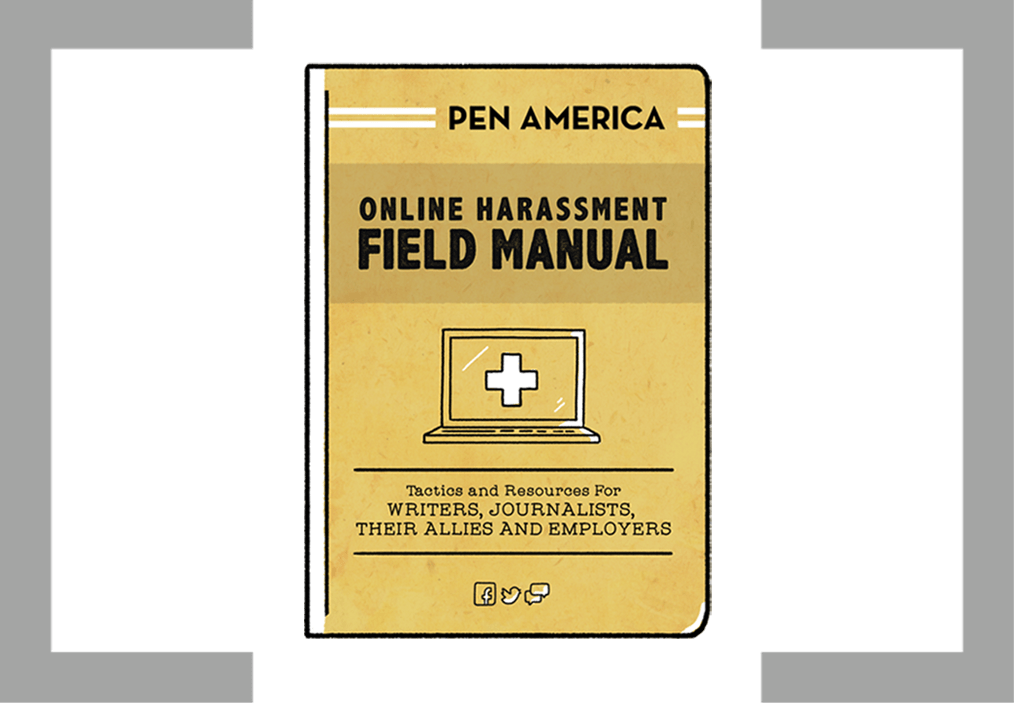Almost three years ago, PEN America released its report on whistleblowers and free expression. We noted then that “Confidential government sources have always served as a vital resource for journalists reporting on national security, and brought to light many major stories.”
Indeed, disclosures of even classified information to the press can play a vital role in advancing accountability and in furthering the public’s ability to make informed evaluations of governmental policies. Without disclosures by federal employees and contractors, we may never have learned about the government’s use of torture, unlawful mass surveillance, wasteful spending, and much more.
The Trump Administration does not seem to appreciate this fact. While President Trump has long been vocal about his disdain for “mainstream” media and sources, whom he brands “leakers,” recent events raise fears that his administration may be trying to operationalize this rhetoric and launch a war on reporters’ national security sources. For example, the administration has:
- Significantly increased investigations into leaks;
- Prosecuted suspected sources under the Espionage Act and other laws;
- Used Freedom of Information Act requests filed by a media outlet to identify and prosecute a leaker;
- Secretly seized a reporter’s phone and email records; and
- Threatened to change policies regarding media subpoenas, claiming (in the words of Attorney General Jeff Sessions), “There’s some things the press seems to think they have an absolute right to that they do not have an absolute right to.”
This barrage of actions—both threatened and realized—has led some observers to declare that the administration is in the opening steps of a “war on leakers.” Such a “war” would—in fact, it may already—have negative consequences for both open government and our civil liberties.
Although the Obama Administration aggressively investigated and prosecuted leakers—as PEN America documented in its 2015 report, “Secret Sources: Whistleblowers, National Security and Free Expression,”—the Trump Administration is even more extreme. Under Attorney General Sessions, the number of Department of Justice (DOJ) investigations into leaks of classified information to reporters has tripled. Sessions testified before Congress that, as of November 2017, the DOJ had 27 open leak investigations. In August 2017, Sessions also announced that the government was “reviewing policies affecting media subpoenas” in leak investigations, a move that could potentially place sources at risk.
The Trump Administration has also begun using the Espionage Act to prosecute those who are suspected of publicly disclosing national security information. This World War I-era law criminalizes the communication, gathering, and retention of national defense information and was meant to punish espionage—not those who warn the public about, for example, foreign attempts to undermine our democracy. Experts have described this law as broad, suppressive, chilling of free speech, and a poor vehicle for prosecuting sources. It is nearly impossible for someone who has been identified as a “leaker” to defend themselves from charges under this law.
In June 2017 the DOJ filed a criminal complaint under the Espionage Act against Reality Winner, a federal contractor suspected of leaking an NSA document to The Intercept describing Russia’s attempts to hack the 2016 American election. Winner was denied bail because she was deemed “dangerous” to society after warning Americans about Russia’s interference (this is in sharp contrast to Paul Manafort, who was initially granted bail despite suspicions he colluded with the Russian government). Although a bi-partisan Senate Intelligence Committee report concluded that many state election officials learned about Russia’s hacking from the press—not the executive branch—and the main story about the hacking was based on the document Winner was accused of leaking, she probably would not have been allowed to mention this during her trial. Courts have historically refused to allow defendants facing Espionage Act charges to argue that their leaks were in the public interest, or mention their motive or any reforms that resulted from their disclosure. Faced with these obstacles and the possibility of a 10-year jail sentence, Winner recently agreed to a plea deal.
In March 2018, the DOJ charged former FBI agent Terry J. Albury under the Espionage Act for transmitting documents and information relating to national defense to a journalist. The charges, which Albury recently plead guilty to, appear to stem from stories in The Intercept about how the FBI aggressively targets potential informants and minority communities. In the affidavit for Albury’s arrest, the government referred to two Freedom of Information Act (FOIA) requests by a media outlet and described how it used the dates of those requests to pinpoint Albury as the likely leaker. This case shows that the FBI is now using FOIA requests made by the media to identify sources.
In an alarming twist, the administration recently expanded its war on leakers to encompass Congress and reporters. In early June, former Senate Intelligence Committee aide James A. Wolfe was arrested on charges of making false statements to FBI agents about his contacts with several reporters in an inquiry into leaks of classified information.
As part of this investigation, the DOJ secretly seized the phone and email records of The New York Times reporter Ali Watkins, with whom Wolfe was in a relationship. Although the FBI was supposedly looking for only one of Watkins’s sources, they seized years of her email records. This was despite DOJ regulations that require investigators to clear several hurdles before seeking reporters’ records—including first making “all reasonable attempts to obtain the information from alternative, non-media sources,” and generally notifying reporters first to negotiate the scope of the demand (though the attorney general is allowed to make exceptions for compelling reasons). According to the The New York Times, “It is not clear whether investigators exhausted all of their avenues of information before confiscating Ms. Watkins’s information. She was not notified before they gained access to her information from the telecommunications companies.”
As Suzanne Nossel, chief executive officer of PEN America, said in PEN America’s statement on this matter, “The fact that the FBI seized a journalist’s personal and professional phone and email records going back years, will cast an inevitable chill on newsgathering at a time when the role of the press in holding government accountable is critically important. This is particularly the case given that the alleged leaks in question relate to allegations of inappropriate and potentially unlawful conduct on the part of a major presidential political campaign.”
Most recently, on June 18, federal prosecutors charged former software engineer Joshua A. Schulte with multiple crimes, including violating the Espionage Act by allegedly stealing and disseminating national defense information. Schulte is the suspected leaker of the CIA Vault 7 documents, which were released to WikiLeaks in March 2017 and detailed the CIA’s hacking operations, including its ability to hack Apple and Android phones. Schulte has plead not guilty and claims he was a whistleblower who first reported “incompetent management and bureaucracy” at the CIA to the agency’s inspector general and the House Intelligence Committee. If this is true, then Schulte’s case could highlight how the internal government channels for intelligence community whistleblowers are broken.
This is supported by the fact that a 2017 draft government report that reviewed 190 whistleblower reprisal complaints in six national security agencies found that the agencies ruled in favor of only one whistleblower who used internal government channels. In other words, the government ruled against 99 percent of intelligence community employees who claimed they were retaliated against for blowing the whistle.
Three years ago, PEN America called upon the preceding administration to end its misguided policy of aggressive investigations and prosecutions of whistleblowers, and instead implement stronger protections for disclosures made in the public interest. Today, we believe that the Trump Administration’s aggressive prosecution of sources is damaging to freedom of expression, press freedom, and access to information in the United States. We therefore call on the Trump Administration to:
- End its practice of using FOIA requests made by the media to identify sources;
- Strictly limit the FBI’s practice of issuing national security letters to obtain journalists’ call records to cases of extreme urgency;
- Respond to a June 15 letter signed by PEN America and other press freedom and civil liberties organizations. This response should include the justification behind the broad seizure of Watkins’s records and explain whether the other avenues specified in DOJ guidelines were in fact exhausted as existing regulations require;
- Commit to not changing the current regulations regarding media subpoenas in leak investigations; and
- Commit to not prosecuting national security sources who meet the criteria outlined in Principle 40 of The Global Principles on National Security and the Right to Information (Tshwane Principles), which recommends that national laws protect external disclosures made to the media under certain circumstances.












